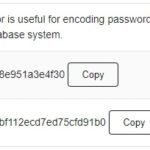The erp system is one of the most important aspects of any business. These systems work to automate many different tasks in an organization, making it easy for employees to do their job and save time. There are a few reasons why you should consider implementing an ERP system into your company today!

ERP stands for “enterprise resource planning.” It is essentially the process of managing all aspects of a company’s infrastructure. ERP systems are software programs designed to help business owners manage their finances, production, human resources, etc.
Table of Contents
Benefits of using an ERP system
An ERP system is a computer software that helps to automate administrative tasks in an organization. These systems are usually designed to help with the efficiency of different business processes, including project management and inventory control among others.
ERP Systems can be used by any company from big corporations like Boeing or Apple down to smaller companies. ERP systems are used to help manage inventory, production, and distribution for a company.
- ERP systems can help reduce costs by automating manual tasks
- ERP systems are flexible and scalable, meaning they can grow with your business
- ERP systems provide a single source of data for all departments in the company
- Using an ERP system will increase efficiency and productivity within your company
- An ERP system is designed to be user-friendly so that employees don’t have to spend time learning how it works
- With an integrated system, you’ll have access to real-time reports on inventory levels, sales figures, customer information etc., which will make decision making easier than ever before
Examples of ERP frameworks
There are many different ERP systems available.
Two examples of ERP:
- Odoo – Odoo is an ERP system that is open-source, meaning it’s free. It has a lot of features and great scalability to meet the needs of any company from startups to big corporations. Its Community Edition is free and open source while Enterprise one with more features requires subscription fee.
- Microsoft Dynamics NAV – This is an ERP developed by Microsoft that is tailored to medium-sized businesses. It includes features like business intelligence and data analytics, finance management capabilities, supply chain collaboration abilities, and many more benefits that will help your company grow.
Different Types of ERP Systems
There are three main types of ERP systems, and the one you choose will depend on your business size.
- Small Businesses: If you have less than 100 employees, then an on-premise solution may be best for you because it’s cheaper to maintain which is a good thing in our economy today. You might want to start with Microsoft Dynamics NAV as their software can grow with your company and includes features like data analytics or even business intelligence capabilities that will help analyze trends in your industry. The downside? It requires more upfront investment so if money is tight this might not work out well for you right now.
- Mid-Sized Businesses: If your company has between 500 – 2000 employees, then a cloud-based solution may be ideal for your company because it’s easy to install and upgrade. You might want to start with SAP Business One which has the ability to support multiple languages, currencies, time zones. The downside? There are no add-on packages that you can purchase so this limits its capabilities in some ways since there is only one offering from SAP that stands on its own without any other companies partnering up with them.
- Large Enterprises: If you have more than 2000 employees then a cloud-based solution is probably not going to work well for your business as their infrastructure would need lots of updating constantly and managing those updates could take away valuable resources from different projects or setbacks when they happen during peak hours.




